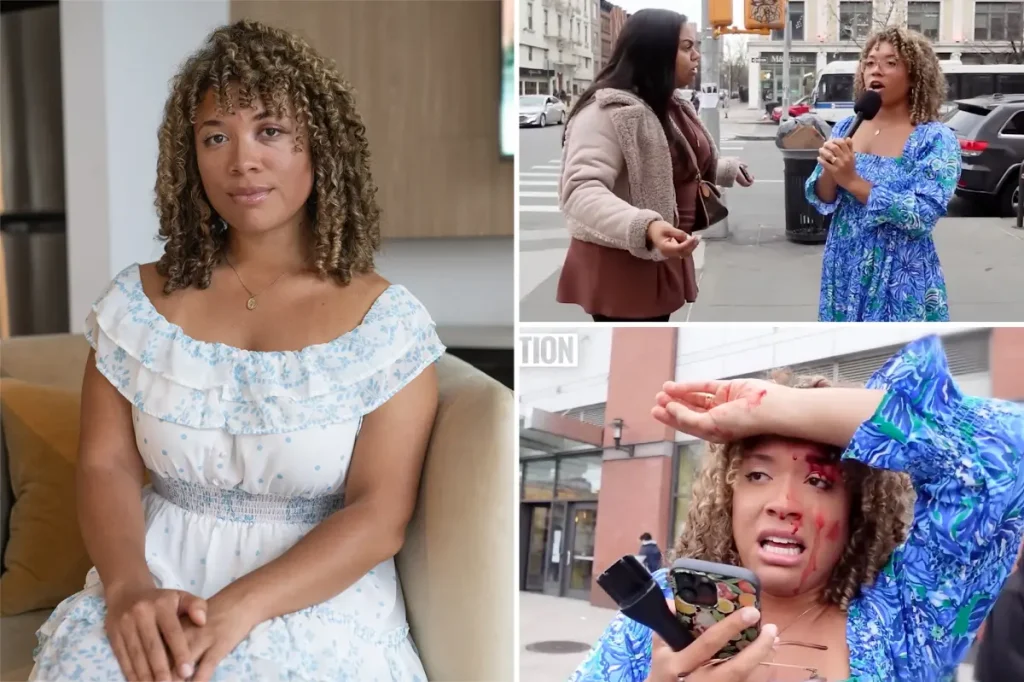Pro-Life Activist Sues After Viral New York City Assault
In a case that highlights the increasingly tense climate surrounding political discourse in America, conservative pro-life influencer Savannah Craven Antao has filed a civil lawsuit against Brianna J. Rivers following a violent confrontation that went viral earlier this year. The incident, which occurred on April 3 while Craven Antao was conducting street interviews for the organization Live Action in New York City, resulted in the activist being struck in the face multiple times. According to the lawsuit filed in Bronx Supreme Court on November 18, Craven Antao required emergency room treatment and stitches, incurring over $3,000 in medical bills. The confrontation, which was captured on video and widely shared across social media platforms, became yet another flashpoint in America’s increasingly divided political landscape, where disagreements over issues like abortion rights sometimes escalate beyond verbal disagreements.
The aftermath of the incident has been particularly troubling for Craven Antao, who claims in her lawsuit that she has suffered symptoms of post-traumatic stress disorder and received hundreds of death threats since the attack. Her attorneys from the Thomas More Society allege that Rivers has “knowingly, willfully and maliciously continued to mock [Savannah] and her views online in order to further inflict emotional distress.” The lawsuit further claims that Rivers mocked Craven Antao’s religious beliefs and, along with her cousin, created merchandise featuring a T-shirt design with the word “BAM!” and an image of a fist striking a face—allegedly to raise funds for Rivers’ legal defense. These actions, according to the lawsuit, constituted an ongoing campaign to humiliate the activist, extending the harm beyond the physical assault to emotional and psychological damage that continues to affect Craven Antao’s daily life and sense of safety.
The legal journey for Craven Antao has been complicated by what her team characterizes as prosecutorial missteps. Initially, Rivers faced second-degree assault charges, but the case was dismissed in July after Manhattan District Attorney Alvin Bragg’s office failed to meet discovery deadlines. This dismissal has become a source of additional frustration for Craven Antao, who expressed her disappointment in an interview with Fox News Digital: “I have to look over my shoulder and worry about if somebody who supports her actions — there are a lot of people out there that do — that they’re going to try to do something else. Because what the DA Alvin Bragg himself has shown to people, with letting this case be dropped, is that they can go assault somebody and hurt them if they disagree with them and nothing is going to happen.” Though Bragg’s office issued a statement in September acknowledging the filing error and apologizing to Craven Antao, calling it an “unacceptable error,” the perceived lack of accountability has motivated the activist to pursue civil remedies.
For Craven Antao, the civil lawsuit represents both a practical and symbolic pursuit of justice. On the practical side, she hopes to recover the more than $3,000 in medical expenses she incurred following the attack. “First, I’d really appreciate my over $3,000 in medical bills to be paid off, because I should not be responsible for those,” she stated. But beyond financial compensation, Craven Antao sees the lawsuit as sending a broader message about acceptable behavior in public discourse: “Second, it’s to send a message — hopefully to show her that she can’t do this again.” Her attorney, Christopher Ferrara from the Thomas More Society, echoed this sentiment, stating: “Savannah was violently assaulted for peacefully expressing her pro-life beliefs and then humiliated all over again when the attacker went online to glorify it. The D.A.’s office had every opportunity to pursue justice, and due to their incompetency or lack of will, failed to prosecute this vicious assault. Their refusal left us with no choice but to file civil action to hold Rivers accountable.”
The incident has also caused Craven Antao to reflect on broader safety concerns for conservative figures and journalists. She specifically referenced the recent killing of Turning Point USA founder Charlie Kirk, suggesting that if someone with his resources and security measures could be targeted, the risks for “average journalists” without such protections are even greater. “With all the threats online and the comments she ‘likes,’ encouraging her behavior, it makes me wonder if the wrong person is going to find me next time and something worse will happen,” she said, highlighting the personal toll the incident and its aftermath have taken on her sense of security. These concerns reflect a growing unease among public figures on both sides of the political spectrum about the potential for political disagreements to escalate into physical violence in today’s polarized climate.
For her part, Rivers previously offered a qualified apology in an April 5 Facebook post, writing: “I understand hands being put on someone is never the answer, but throwing rocks and hiding hands is worse. Savannah is a professional antagonist, not a ‘reporter,’ and the truth will be told.” This characterization of Craven Antao as a “professional antagonist” rather than a legitimate journalist points to the fundamental disagreement at the heart of this case—one about the nature of public discourse, the boundaries of free speech, and how we as a society handle deeply divisive issues like abortion. As this civil case moves forward, it will likely serve as yet another chapter in America’s ongoing struggle to balance passionate advocacy with peaceful coexistence, highlighting the personal costs when that balance is lost. Neither Rivers nor the Manhattan District Attorney’s office responded to requests for comment from media outlets regarding the new civil lawsuit.


